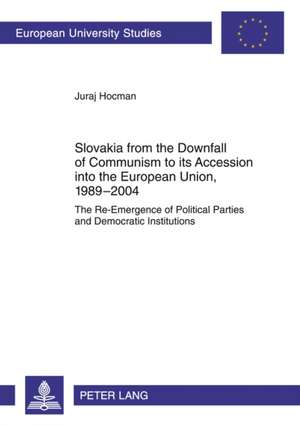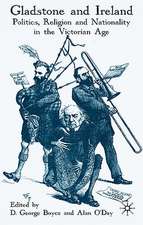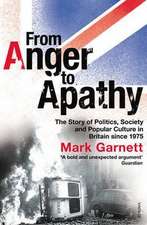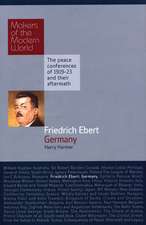Slovakia from the Downfall of Communism to Its Accession Into the European Union, 1989-2004: The Re-Emergence of Political Parties and Democratic Inst: Europäische Hochschulschriften (Reihe 31): Politikwissenschaft ) / European University Studies (Series 31): Political Science / Publications Universit, cartea 600
Autor Juraj Hocmanen Limba Engleză Paperback – 12 mai 2011
Preț: 400.47 lei
Preț vechi: 435.30 lei
-8% Nou
Puncte Express: 601
Preț estimativ în valută:
76.63€ • 80.23$ • 63.56£
76.63€ • 80.23$ • 63.56£
Carte tipărită la comandă
Livrare economică 07-12 aprilie
Preluare comenzi: 021 569.72.76
Specificații
ISBN-13: 9783631611531
ISBN-10: 3631611536
Pagini: 305
Ilustrații: num. fig., tables and graphs
Dimensiuni: 210 x 150 x 20 mm
Greutate: 0 kg
Ediția:Nouă
Editura: Peter Lang Gmbh, Internationaler Verlag Der W
Seriile Europäische Hochschulschriften (Reihe 31): Politikwissenschaft ) / European University Studies (Series 31): Political Science / Publications Universit, Europaeische Hochschulschriften / European University Studie
ISBN-10: 3631611536
Pagini: 305
Ilustrații: num. fig., tables and graphs
Dimensiuni: 210 x 150 x 20 mm
Greutate: 0 kg
Ediția:Nouă
Editura: Peter Lang Gmbh, Internationaler Verlag Der W
Seriile Europäische Hochschulschriften (Reihe 31): Politikwissenschaft ) / European University Studies (Series 31): Political Science / Publications Universit, Europaeische Hochschulschriften / European University Studie
Notă biografică
Juraj Hocman holds a J.D. in International Law from the University of Pavol Jozef safárik in KoSice (Slovakia), an MA in History and a postgraduate diploma in International Relations from Comenius University in Bratislava. He received a Master's degree from the Institute of European, Russian and Eurasian Studies at Carleton University in Ottawa (Canada) and earned his doctorate in History at the University of Ottawa. The author specializes in the modern history of East Central Europe.
Cuprins
Contents: Slovak identity - Slovak nationalism - Magyarisation - Czechoslovakia - Slovak political nation - Communism - Velvet Revolution - Split of Czechoslovakia - Meciar governments - Privatization - Non-governmental sector - Slovak civil society - Election campaigns - Parliamentary elections in 1998 and in 2002 - Dzurinda governments - Accession into the European Union - Myths in Slovak national history - History as being versus history as seeming.


















